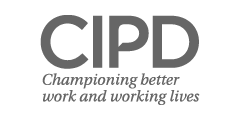High engaging and contributing teams
How people work together influences everything. In times of uncertainty and disruptive change, the ability to create, develop, and empower high-performing teams will give organisations a lasting competitive edge.
However our world of work emerges, we know that at least some people will be remote and others will return to offices: this creates an imperative for leaders to lead virtual and hybrid teams. Some leaders have the limiting and incorrect belief that a team with many high-performing individuals is a high-performing team. All the research shows that this is not true and with the changed working dynamics, there is a new imperative for leaders and managers to build new skills to lead high-performing teams.
Our facilitated team development sessions recognise that high-performing teams don’t happen by accident.
These facilitated virtual sessions share the criteria and associated tools and approaches that high-performing teams have in common. Quality conversations are at the heart of great relationships. One of the biggest reasons why distributed teams fail is because they don’t compensate for the fact that team members are not bumping into each other; they do not communicate or collaborate as much as they need to. Certain leaders often say they lack the understanding of how to enable their teams to work collaboratively, preferring instead to lead their teams through silos. Other leaders believe teams are too much trouble or they fear the time, personal discomfort and personal risk that can happen in a team environment, yet the potential performance of a team is much greater than for a collection of individuals.
The virtual team sessions cover a number of key skills to address these risks. For a virtual team we must learn to enable the human dimension more clearly and deliberately so that team performance is not jeopardised. We use a proprietary teamwork model © which is based on comprehensive research and experience of working with teams over the last 35 years and the more recent research on best practice in working with teams virtually. It is based on eight tenets. Teamwork begins by building trust. A vital component of developing trust is having empathy with other team members. A team needs to focus on a clear set of accountabilities which all members are committed to achieving, a clear and compelling mission, a reason to work together and be part of something bigger. Similarly, teams without clear, explicit ways of working can be influenced by unaligned assumptions that hinder effectiveness. Most management research is showing the importance of adaptability and agility to optimise success and given the current crisis we are in, the relationships aspect of team cohesion is vital. Finally, key team performance indicators are the primary objective of the team, not teamwork for teamwork’s sake.
If you’re keen to implement strategies to strengthen your teams and enable them to perform at the highest levels, get in touch on letstalk@conder.co





